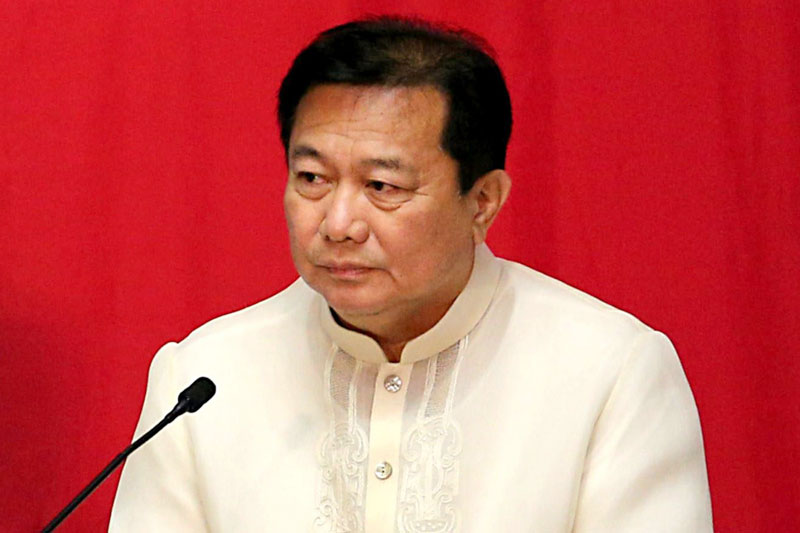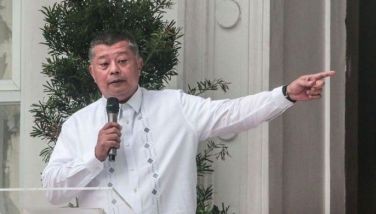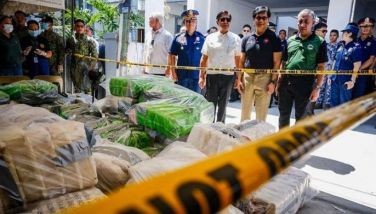'More than money, it is about memory': Fight against dictatorship continues for some Marcos victims
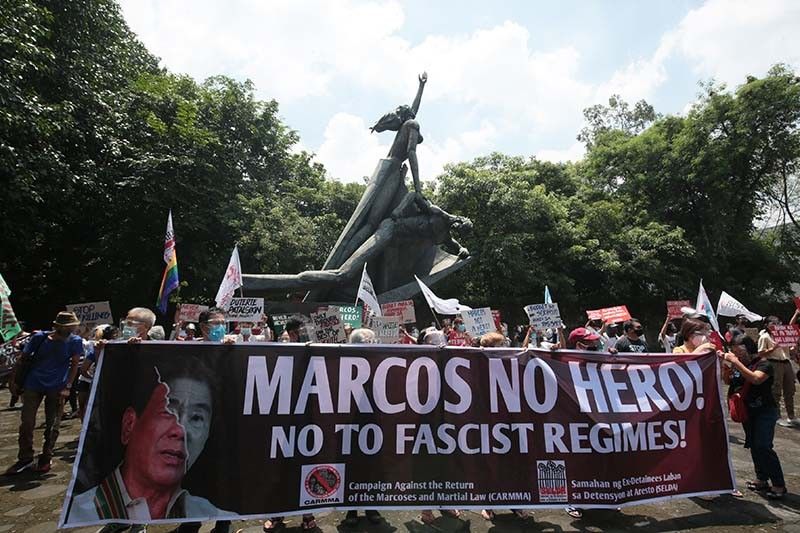
MANILA, Philippines — Danilo Dela Fuente was 22 years old when the dictator Ferdinand Marcos Sr. signed Proclamation 1081, declaring martial law in the Philippines. Nearly a decade later — on February 25, 1982, shortly after martial law was lifted symbolically while retaining decrees issued during the period — he and other labor organizers would be arrested.
The then labor leader was brought in for interrogation and went through 24 days of torture at the hands of the military. He was electrocuted, punched in the stomach, and his head was pounded against the wall. The soldiers also made him do Russian roulette.
Dela Fuente was imprisoned for four years and was freed on February 25, 1986 after the dictator was ousted.
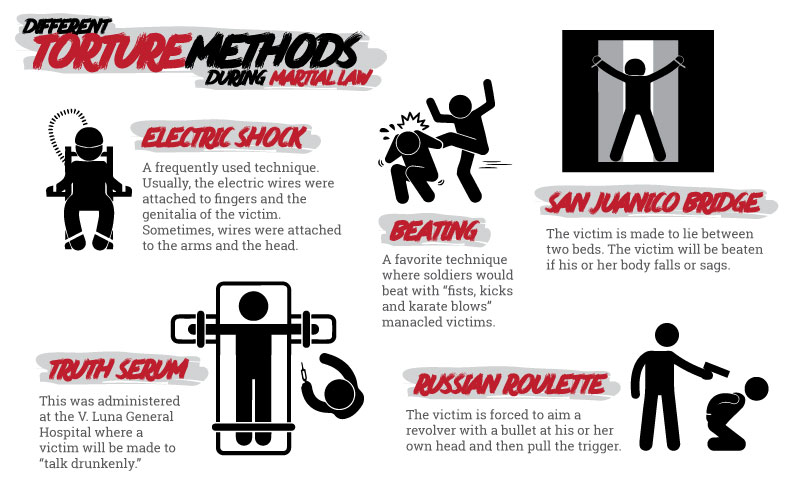
But it was only in 2017 that he received compensation from the state, through the Human Rights Victims’ Claims Board (HRVCB), for abuses done to him by state agents.
"The soles of our shoes had worn out before it was implemented," Dela Fuente, now 70 years old, told Philstar.com in an interview.
He was one of some 4,000 Martial Law-era victims in the first batch of victims who partially received compensation. The full monetary reparation was given a year later.
Dela Fuente said the money is being used to fund the college education of his child.
But the importance of Republic Act 10368 — the Human Rights Victims Reparation and Recognition Act of 2013 — for Dela Fuente and other victims and their kin goes beyond the P1.8 million that he received in reparations.
RELATED: ‘Brutalist’ martial law museum to rise in UP Diliman
Recognition, reminder
“It’s a proof that there were human rights violations during the Marcos regime,” Dela Fuente, who serves as the vice chairperson of Samahan ng Ex-Detainees Laban sa Detensyon at Aresto (SELDA), said. Among the members of SELDA are Martial Law victims.
Some 70,000 people were imprisoned, 34,000 were tortured and over 3,200 were killed from 1972 to 1981 when Martial Law was lifted, according to human rights group Amnesty International.
For filmmaker and playwright Bonifacio Ilagan, RA 10368 serves as a reminder.
“The significance of the law was way beyond the monetary compensation, even as the majority of us badly needed the funds because we were aging and sickly; the law serves as a reminder, now enshrined, of that dark period in our history when one dictator reigned supreme and mobilized government against the people,” Ilagan, chairperson of the First Quarter Storm Movement and spokesperson of the group Campaign Against the Return of the Marcoses and Martial Law, said.
Ilagan, former chairperson of Kabataang Makabayan, was arrested in 1974 and brought to Camp Crame where he was tortured. His incarceration ended in 1976.
A year later, his sister, Rizalina, along with nine other activists in Southern Tagalog was abducted by military operatives and was never seen again. Rizalina’s name is inscribed on the wall of remembrance at the Bantayog ng mga Bayani, which honors the heroes of the struggle against Marcos’ 21-year dictatorship.
“It (the law) is also a collective tribute to the generations of Filipinos that stood up against tyranny,” Ilagan said
11,103 successful claims
RA 10368, signed into law in 2013, created the HRVCB, which was mandated “to receive, evaluate, process and investigate” reparation claims made by victims of human rights violations under the Marcos regime.
It processed over 75,000 claims for recognition and reparation. Before its operation ended on May 12, 2018 by virtue of the law’s sunset provision, it determined 11,103 claimants eligible for monetary reparations. More than 60,000 were denied for various reasons based on criteria set by the law.
Of the successful claims, almost 21% were cases of enforced disappearance and killing. Other categories of human rights violation include rape, torture, cruel, inhuman and degrading treatment, arbitrary detention, destruction of properties, deprivation of livelihood and unlawful arrest.
The HRVCB employed a point system depending on the severity of the victims’ experiences, with those who died or disappeared given the maximum of 10 points. Dela Fuente, who was tortured at the hands of soldiers, was awarded eight points.
President Rodrigo Duterte approved a congressional resolution extending the validity of funds to compensate martial law victims until the end of 2019.
The Commission on Human Rights told Philstar.com that 17 checks have been unclaimed "despite exerting all efforts."
Martial law victims were also awarded compensation as part of the successful class suit filed in Hawaii. In April 2019, a New York federal court ordered the distribution $13.75 million to victims of human rights violations during the martial law period, but only an estimated 6,500 out of the original 9,539 members of the class suit received monetary reparations.
For Carlo — whose parents were arrested and tortured during the Marcos years and who received compensation from the Hawaii case — the amount was "very small in the context of the far reaching effects of the pain and suffering" his parents went through and the lingering trauma that affected his childhood and youth.
He said when he went to claim the first check, he suffered a panic attack from the stress and the weight of the experience. He will not be claiming the next checks in person.
"The toxic parts of that chapter of our lives is like buried sediments in my being," Carlo, who is in his forties and was hesitant while talking to Philstar.com about his parents' case, said.
"I've already buried that as part of my therapy because it is difficult to confront all at once. Whenever it gets disturbed or unearthed there are so many effects that become physical. So I try to come at it only when am strong and only in chunks."
Receiving compensation does not mean an end to what the martial law victims and their kin have been though nor does it mean their struggle to prevent another martial law ends.
Marcosian rehabilitation
Last week, the House of Representatives approved House Bill 7317 on third and final reading a proposal to declare September 11 — the late dictator’s birthday — as "President Edralin Marcos Day" in his home province of Ilocos Norte.
It is seen as another step in the rehabilitation of the Marcoses after the ousted dictator's remains were interred at the Libingan ng mga Bayani in Taguig City by virtue of his being a former president.
Asked about the House move, Carlo's reaction is unprintable but is often uttered at the president's public addresses.
He said, though, that he is not surprised that the House of Representatives approved the proposal to make the ousted dictator's birthday a local holiday.
Judy Taguiwalo, a former social welfare and development secretary and a martial law survivor, stressed the need to educate the people about the horrors during the Marcos era and to combat historical revisionism.
Although some efforts, including by Sen. Imee Marcos, to recast the Martial Law era as the country's "golden years" have been rebuffed by government officials, President Rodrigo Duterte has himself often expressed his admiration for the ousted dictator and has said, despite court decisions, that there is no proof that the Marcoses have ill-gotten wealth.
READ: Dominguez counters Marcos with history to debunk Masagana 99 'success'
Apart from actually declaring martial law in Mindanao from 2017 to 2019, Duterte also frequently brings it up as an option while his allies in civil society and the House seem eager to call for "emergency powers" for the chief executive.
“Preventing our people, especially the youth, from forgetting and making them learn the lessons of history has become doubly hard at this time because it is the Duterte government itself and its lackeys that have become the principal purveyor of historical revisionism and the lies that the Marcoses are dying to present as ‘truths,’” Ilagan said.
RELATED: 'I don't know them': Duterte distances self from group who renewed call for revolutionary gov't
'Continuing past'
Recognizing that there were human rights violations and plunder during the rule of the late dictator is one thing. Making sure that the cycle of abuses and corruption is another and more difficult task.
“A great many of the politicians and opportunists who hitched to the broad anti-Marcos front and rode in the bandwagon of ‘people power’ forgot all about the obligation to sustain the anti-dictatorship struggle and its ramifications in the culture of the people, that it had not ended with the expulsion of Ferdinand and Imelda and General [Fabian] Ver and the Marcos cronies,” Ilagan said.
For Taguiwalo, who was arrested in 1973 and went through torture for two nights, it is a “continuing past.”
“The same issue of tyranny, the same issues of corruption and plunder, the same issue of widespread corruption especially now during pandemic and the same issue of subservience would be continuing,” she said.
In 1974, Taguiwalo escaped from prison and went underground to join the resistance against the Marcos dictatorship. The then-pregnant Taguiwalo was arrested again in January 1984 and gave birth inside Camp Crame, where she would raise her daughter until the 1986 People Power Revolution.
“We are saddened because our generation, my generation that survived martial law, it is so hard to accept the fact that we are in a second period of tyranny,” she said.
RELATED: #ChallengeAccepted: Influencers can go beyond 'good vibes' and drive discourse on national issues
'Tyranny is not forever'
"It is only the people’s organizations in the progressive mass movement that could be relied upon to pursue the struggle against historical revisionism and the Marcos legacy of tyranny and fascist populism that is now embodied by the Duterte regime," Ilagan said.
"They are doing it not merely by upholding history in discourses but more so, by fighting against extrajudicial killings, the terror law, impunity, corruption, nepotism and all the best practices of martial law," he added.
Taguiwalo emphasized the importance of collective effort in the struggle against tyranny.
"The fight against tyranny has always been difficult. They have the money, they have the armed groups, the media. So, yes, it will take time because it has to be people’s action," she said.
But she said that there is end to tyranny. “I think our history has proven that.”
For the 70-year-old Dela Fuente, it is his wish to live for another decade to make sure the current generation and the generation after that would not experience what they did.
“We will not stop. We are already old but the fight still continues,” he said.
RELATED: Can cops confiscate your protest placards? Guevarra says 'no'
- Latest
- Trending



















